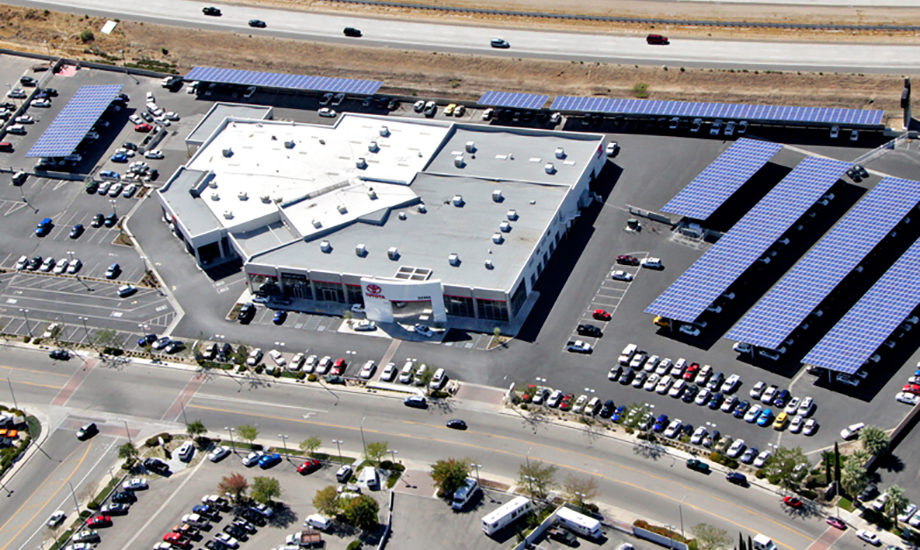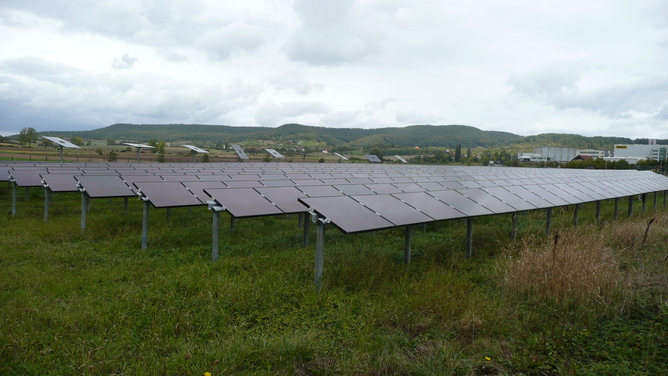The City of Tallahassee has decided to do what Google and Apple have recently done- invest in solar.
On February 25th, 2015 the Tallahassee City Commission voted in favor of the City’s electric utility proposal to build 10 Mega- watt “solar farm” that could be producing electricity as early as December, 2016.
City staff told the City Commission that reductions in the cost of solar power technology, as well as growing interest in clean energy within our community, have made solar power more attractive as a potential energy resource for the City’s electric system.
The proposed project is a large system with electric production capability on the order of mega-watt (millions of watts), constructed on the ground, and connected directly to the utility grid.
The project is different from the smaller “rooftop” solar systems that produce only a few kilo-watts (thousands of watts) and are tied to “net metering agreements” with the utility.
The system would require approximately 100 acres of land for construction. Staff has identified that there may be suitable land at the Hopkins Generating station. Regardless of where the facility is located, the 100 acres required for the project will have to be totally cleared.
The Re-Emergence of Solar
The decrease in the costs of solar power over the last three years has suddenly created a spirited debate over future energy delivery. The debate appears poised to challenge the position of regulated electric utilities which currently rely on government officials to determine prices they can charge for electricity.
Much like the telecommunications revolution over the last thirty years which provided consumers with more competition, and therefore more choices, the advancement in solar power technology could do the same with electricity.
However, for the solar power movement to reach it’s full potential in the private sector here in Florida, state and local laws will have to change.
Currently, businesses that want to build “solar power plants” and sell electricity to customers are forbidden to do so by law.
For example, a business is not allowed, under current law, to lease the roof top of a retail center or an apartment complex and install solar panels and sell electricity to customers.
And this is where the debate over solar power is headed.
How long will it be before local and state governments allow the private sector to compete with electric utilities in providing electricity to customers that have traditionally been captured by monopolies?
Florida and Tallahassee are already behind other states.
In April 2013, Iowa became the 23rd state that allows solar energy companies to offer financing options without the risk of being characterized and regulated like a utility.
The Iowa District Court ruled that solar energy companies offering power purchase agreements, the most common financing arrangement for commercial solar installations nationwide, should not be regulated like an electric utility. This precedent setting case reversed an earlier Iowa Utilities Board decision that had been holding up solar development in the state for over a year.
The movement has serious private sector investors.
Bloomberg reported in February that Apple signed an $850 million agreement to buy solar power from First Solar, the biggest U.S. developer of solar farms. It’s the biggest-ever solar procurement deal for a company that isn’t a utility, and it nearly triples Apple’s stake in solar, according to an analysis by Bloomberg New Energy Finance (BNEF). “The investment amount is enormous,” said Michel Di Capua, head of North American research at BNEF.
Read “What Apple Just Did in Solar Is a Really Big Deal here.
Later in February, Bloomberg reported that Google Inc. made its largest bet yet on renewable energy, a $300 million investment to support at least 25,000 SolarCity Corp. rooftop power plants.
Read about Solar City’s case study for a Toyota dealership, shown in picture below, here.

Google has now committed more than $1.8 billion to renewable energy projects, including wind and solar farms on three continents.
So what is holding back solar power in Florida and in cities like Tallahassee?
Sources in the industry tell TR that the transformation from a monopoly to a competitive market is never easy. Private sector monopolies want to protect profits and a customer base and government owned utilities want to protect tax revenues.
In fact, since Tallahassee’s electric utility is regulated by a municipality, sources tell TR that the City Commission could allow third party businesses to sell electricity. TR is trying to confirm this with the electric utility staff.
However, during the presentation on the 10MW solar project to the City Commission, City staff made a distinction between electric utility provided solar power and private sector or third party provided solar power.
The agenda item stated “other ‘third-party’ models result in a third-party between the Customer and the City. Third-party models differ from the City’s standard direct customer service approach. For these reasons, staff is recommending that the City not pursue either of the third-party models outlined above.”
This is where Floridians for Solar Choice comes in.
This group is behind a statewide initiative to change the Florida Constitution in 2016. The change will allow businesses to sell solar power and industry sources tell TR that the change will impact municipally owned utilities like “Your Own Utility” in the City of Tallahassee.
TR will continue to provide exclusive information on the solar debate in Florida and Tallahassee. Our next report will look at the details of why some groups oppose third party solar power agreements.


I must say solar is worth to install. Few months back only we got installed solar at our home, and now we are very happy by our decision as the electricity bill is coming 0, earlier it was coming monthly $200. Thank you so much to the best solar installation company in Florida Solar Tech Elec LLC. Great Job Ross.
Whatever happened to that solar project in Gadsden County? That would have dwarfed this 10-megawatt project.
How can you can tell when an ideas time has passed? When the government finally gets around to wasting taxpayers dollars on it.
I thought the saddest thing I ever saw were the fields and orchards lying fallow and overgrown, until I saw productive farmland turned over to the green Nazis for another government sponsored boondoggle.
If they want to put solar panels on every roof, it would only be a waste of money. To use arable land for anything except food production is shortsighted and selfish. That goes for the bird mincing wind farms too.
Nuclear power is the answer to our energy needs for the foreseeable future.
So no one uses the city’s low interest loan program for solar photovoltaic systems because the city’s energy inspectors discourage customers from installing solar because “you won’t get your money back”. So now that the city wants to sell you solar power…it is instantly cost effective.I am sorry..I am still trying to recover from the 50 million dollar smart meter the city installed.
…It should be mandatory that the solar contractor be an established Tallahassee business. Why send our tax payers dollars out of town…we need the jobs here. Amen
It is time for the City of Tallahassee Utilities, and all other government-owned utilities for that matter, to be regulated by an outside entity such as the PSC…
Too much power is given to the city, who can impose taxes on those outside if the city limits via utility rate premiums.